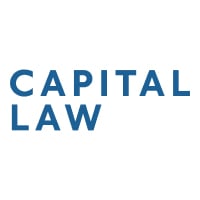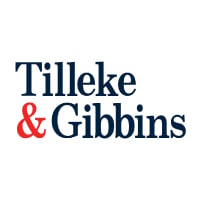

Vice president legal and member of country leadership team | DKSH Thailand






Sahachai (Jack) Wibuloutai
Vice president legal and member of country leadership team | DKSH Thailand
How do you approach managing legal aspects during periods of instability or crisis to ensure the organisation’s resilience?
During periods of instability or crisis, my approach focuses on four pillars: risk assessment, regulatory alignment, stakeholder communication, and business continuity. First, I lead swift legal risk mapping to identify exposure areas, particularly in regulatory compliance and contractual obligations. Second, I ensure alignment with evolving laws and public policies in Thailand, often liaising with regulators for clarity. Third, I establish clear, responsive communication with internal teams and external partners to manage expectations and uphold trust. Lastly, I integrate legal guidance into the organisation’s crisis response plan to support operational resilience and decision-making under pressure. This structured, proactive role ensures the legal function is both a shield and a strategic partner in sustaining the business through uncertainty.
We are currently living through a time of geopolitical change, and the world order that we have come to take for granted for many years is being rewritten. Does this affect your company’s risk profile and, if so, what are you doing to mitigate this?
Yes, the shifting geopolitical landscape does impact our organisation’s risk profile, particularly in areas such as trade regulations, sanctions, and supply chain stability. As general counsel, my role involves proactively monitoring these developments and advising the business on legal exposure and compliance strategies. We’ve strengthened our risk management framework by enhancing due diligence processes, updating internal policies, and fostering close collaboration with our operations and compliance teams. Additionally, we maintain ongoing dialogue with external counsel in key jurisdictions to ensure timely responses to regulatory changes. This ensures that DKSH remains agile, compliant, and resilient in a complex global environment.
What do you think are the most important attributes for a modern in-house counsel to possess?
A modern in-house counsel must be more than a legal advisor—they must be a strategic partner to the business. Agility, commercial acumen, and sound judgment are essential. Today’s legal leaders must navigate complex regulatory environments while anticipating risks and enabling growth. It’s about being proactive, not just reactive.
Equally important is the ability to communicate clearly across all levels of the business – translating legal complexity into actionable insight. Leadership and emotional intelligence are key, especially in guiding teams through change and fostering a culture of integrity and resilience.
In an era defined by rapid technological evolution, a strong grasp of digital innovation and data ethics is no longer optional. The most effective GCs embrace change, champion ESG principles, and drive value beyond the legal function. Ultimately, success lies in balancing legal rigour with a pragmatic, solutions-focused mindset.
How can general counsel foster a corporate culture that supports ESG principles and compliance across all levels of the organisation?
As general counsel, fostering a culture that embeds ESG principles begins with leading by example and integrating ESG into the company’s legal and strategic frameworks.
We ensure ESG is not seen as a standalone initiative but as a core element of risk management, governance, and long-term value creation. This involves close collaboration with the board, executive leadership, and functional teams to embed ESG criteria into decision-making, policies, and training. We work cross-functionally to align legal compliance with sustainability goals, ensuring transparency, stakeholder engagement, and accountability.
By promoting a speak-up culture, encouraging responsible business conduct, and actively supporting diversity, equity, and inclusion, we help create an environment where ESG is owned at every level of the organisation. Ultimately, legal’s role is to connect our organisational purpose with legal practice, making ESG not just a compliance obligation but a strategic imperative.
General counsel, Thailand and Mekong region | PwC